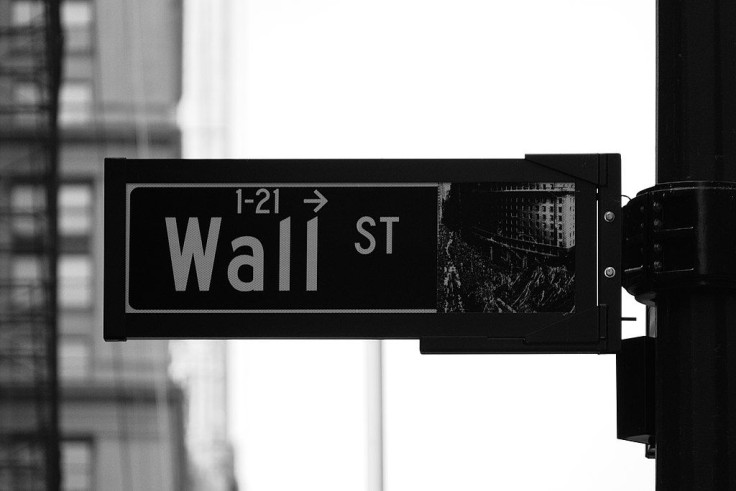Friday's Stock Market Open: US Equities Drop After Three-Day Rally As House Prepares To Vote On Stimulus

KEY POINTS
- House is expected to pass $2 trillion stimulus package on Friday
- UK Prime Minister Boris Johnson tested positive for coronavirus
- Asian equity markets closed higher
Update: 12:05 p.m. EDT:
U.S. stocks continued to incur deeper losses as of noon Friday.
Rep. Thomas Massie, R-Ky. said he may hold up the vote on the $2 trillion stimulus package citing it spends too much in taxpayer money.
The Dow Jones Industrial Average dropped 861.73 points to 21,690.44, while the S&P 500 fell 93.59 points to 2,536.48 and the Nasdaq Composite Index tumbled 273.38 points to 7,524.16.
Crude oil futures plunged 5.49% to $21.36 per barrel.
In Europe markets closed lower, as Britain’s FTSE-100 plunged 5.7%, France’s CAC-40 tumbled 4.54% and Germany’s DAX fell 3.7%.
Original story:
U.S. stocks dropped on Friday, a sudden about turn from a three-day rally that saw the Dow surge more than 20%.
The Dow Jones Industrial Average dropped 816.31 points to 21,735.86, while the S&P 500 fell 90.93 points to 2,539.14 and the Nasdaq Composite Index tumbled 229.84 points to 7,567.70.
On Friday, the House is expected to vote on, and the pass, a $2 trillion economic stimulus bill aimed at mitigating the financial impact of the virus.
Johns Hopkins University said the global number of coronavirus cases now exceed 542,700 with at least 85,996 in the U.S.
President Donald Trump spoke on the phone with Chinese leader Xi Jinping, and said the two countries are “working closely together” to fight the virus pandemic.
U.K. Prime Minister Boris Johnson has tested positive for the coronavirus.
“We believe medium-term risks are skewed to the downside after this rally,” Maneesh Deshpande, Barclays’ chief U.S. equity strategist, said. “Two other uncertainties facing investors (the length of the economic quarantine required to contain the virus and the ultimate economic damage) remain unresolved.”
Some analysts were skeptical about the recent three-day stock rally.
“Even though equities were squeezed higher into the close [on Thursday], credit markets continue to diverge substantially,” said Ken Berman, strategist at Gorilla Trades. “You could almost smell the burning shorts on Wall Street [Thursday], but as credit spreads remain wide, one has to wonder how much ‘real’ buying is behind this week moves, besides the bailout-induced short-covering.”
Gregory Faranello, head of U.S. rates trading at AmeriVet Securities, said: “I wouldn’t necessarily take the price action in the risk markets right now to be a true reflection that this is over. This is going to be an economic fallout. We’re seeing in two weeks what we would normally see maybe in a year and a half or two years.”
In U.S. economic data, personal income increased by 0.6% in February, while disposable personal income rose 0.5% and personal consumption expenditures edged up 0.2%.
Overnight in Asia, markets closed higher. China’s Shanghai Composite inched up 0.26%, while Hong Kong’s Hang Seng edged up 0.56%, and Japan’s Nikkei-225 surged 3.88%.
In Europe markets dropped, as Britain’s FTSE-100 plunged 5.69%, France’s CAC-40 tumbled 4.58% and Germany’s DAX fell 3.85%.
Crude oil futures dropped 4.2% at $21.65 per barrel, Brent crude slipped 0.74% at $27.91. Gold futures fell 1.3%.
The euro slipped 0.66% at $1.0961 while the pound sterling gained 0.21% at $1.223.
© Copyright IBTimes 2024. All rights reserved.




















